The CFO career path is one reserved for people with true ambition. If that’s you, your education and career goals are already high on your list of priorities. Chances are you’ve already got a head start on how to become a CFO.
But you need to take some strategic steps along the way, and there are ways to fast-track your goals.
From gaining the right education to making the right connections, this c-suite role is about leadership, power, strategy, and financial acumen. And the typically high CFO salary reflects the high level of responsibility and influence. If you’ve got the chops, being a CFO can be a lucrative career full of exciting challenges and growth opportunities.
Want to become a CFO? Here’s where to start.
Originally published in January 2021, this article was updated and republished on November 15, 2022.
How to Become a CFO in 6 Strategic Steps
Like any professional journey, becoming a CFO has a series of requirements and hoops to jump through. These start with your education and experience, but can include a number of strategy moves along the way.
For instance, many people who end up in accounting on an executive level have a CMA certification or other business credential. Read on to learn more about the six steps you should take if you want to commit to becoming a CFO.
- Get a Bachelor’s Degree in a Relevant Field
- Get an MBA or MSF Degree (Optional)
- Get a Professional Certification, Like a CPA or CMA
- Get Well-Rounded Experience (More Than Just Accounting)
- Develop Management Skills
- Establish a Solid Career (or Take a Fast-Track)
Step 1: Get a Bachelor’s Degree in a Relevant Field
If you’re a planner, you may have your eye on this prize as early as college. That’s commendable. And important. Because chief financial officer qualifications include your education and degree.
An attractive CFO degree is going to be in accounting or finance. It can be general, but needs to be in the right universe if you hope to work your way up the ladder one day.
Most people with business degrees won’t go on to become a CFO. Some people do pursue an MBA with a concentration in accounting or finance, which may be an exception that gets you to the CFO role.
Step 2: Get an MBA or MSF Degree (Optional)
Most people who are really serious about getting to the top of the accounting field and becoming a CFO do either graduate studies, a professional certification, or both. While it isn’t required, having a Master’s of Business Administration (MBA) with a concentration in accounting/finance or a Master’s of Science in Finance (MSF) has numerous benefits.
First, you get a lot more study time with relevant concepts and skills. Second, you are building a network of faculty members and peers who are on the same track, possibly in the same industry. These two aspects can prove invaluable when you hit the job hunting phase of your journey.
Step 3: Get a Professional Certification, Like a CPA or CMA
In addition to college and possibly graduate work, it’s recommended that people who want to become a CFO pursue an professional accounting certification. The two most popular and respected are Certified Public Accountant (CPA) and Certified Management Accountant (CMA).
Although CPA and CMA are both frequently associated with the CFO role, CMAs are considered experts in financial management, strategic decision-making, and managerial accounting. That’s a good comfort zone to have if you’re leading a company’s finances.
In the IMA’s annual salary report, professionals who have both certifications report higher job satisfaction and significantly higher salaries. Globally, CMAs earn a median total compensation that is 58% higher than non-CMAs. It’s hard to ignore numbers like that.
While both the CPA and CMA can help you become a CFO, there are some key differences in the areas of specialization for each certification that could impact your career path.
First, a CPA and CMA require candidates to possess different professional skills. CPAs are focused on taxation, audits, and compliance activities. CMAs, however, are trained in strategic management, planning, and projection which makes them excellent candidates for a leadership role such as CFO.
In order to become a CFO, it’s critical to demonstrate leadership skills through either experience or education. With a CMA, you can show potential employers your commitment to excellence in leadership and strategic planning. For this reason, it’s the preferred certification for CFOs.
Secondly, the certification process for each designation is different. The CMA exam is made up of two parts, whereas the CPA exam is four parts. As for pass rates, the CMA pass rate is approximately 45%, and the CPA pass rate is approximately 54%.
To pass the CMA exam, it’s important to develop good study habits, commit to a schedule, and spend at least 15-20 per week studying. It’s no easy undertaking, but the right study material can help.
My CMA exam review course was designed to save you time and help you pass the exam on the first try. It’s a 16-week accelerated course that requires only 8-10 hours of weekly study time.
What’s more: CMA Exam Academy students have a pass rate of 88.7%. That’s 43.7% higher than the global average!
I’m so confident in the course that I offer a 100% money-back guarantee. If you’re interested in earning a CMA, it’s the best study resource available.
Step 4: Get Well-Rounded Experience (More Than Just Accounting)
CFOs need to be more than master management accountants. They have a decision-making role in areas as diverse as IT, human resources, investor relations, supply chain, and operations.
Plan your career moves to challenge yourself. Build your understanding in a diverse body of business knowledge and your ability to apply it in a capable way. Learn the lingo. Not just the vocabulary, but the concepts, skills, trends, and nuances of your industry.
Much of the test prep you do for graduate school and advanced accounting certificates can help you build this understanding in a meaningful way. However, landing a CFO role is a long-term commitment that takes demonstrated abilities.
Step 5: Develop Management Skills
Even if you love numbers, the path to CFO is going to include lots of people. CFOs are at the top of the heap. This means that you will inevitably be reported to by department heads and you will need to manage teams.
As early as college, you can start sharpening these skills. The ability to communicate well, articulate goals, cast vision, and manage projects may make all the difference between you and another CFO applicant.
Step 6: Establish a Solid Career (or Take a Fast-Track)
Your track record should speak for itself. So, build it with intention. Each job you take can contribute to a body of work that clearly demonstrates your skills and abilities.
If your end game is to be a CFO, you need to think strategically about where you work and how you build a network that can be useful to you.
Still, it takes many years to move up to an executive position. The average CFO age at top corporations is 50+.
If you want to be one of the younger outliers, start getting actual CFO experience without waiting for a promotion.
If you have the right qualifications, like a CMA, consider starting a Virtual CFO practice. An emerging field for qualified accountants is to become a virtual chief financial officer (vCFO). This is an off-site position that gives you location independence, with the same role and title as a traditional executive.
CMAs are particularly well-positioned to be high-powered players in the c-suite. Start it as a side hustle, do it in a consultative capacity, and earn some great credentials to accelerate your career.
Chief Financial Officer Requirements
While the extra education and certifications go a long way, they aren’t actually necessary to becoming a CFO. In fact, chief financial officer requirements aren’t set in concrete. They will vary from company to company.
Of course, there are some reliable expectations a company will have about someone applying for a job at this level. Broken down, you’ll probably need to have a resume that conveys personal skills, relevant education, and the right amount of work experience.
Personal Skills
There is no substitute for people skills. CFOs will be expected to communicate with boards, shareholders, fellow executives, and employees at every level of the company. The right personal skills include the following:
Leadership
CFOs are expected to be great leaders. They need to be able to manage teams, provide directives, and cast vision that gets people from every department on board. Thus, developing leadership skills as a CMA can be just as valuable as math and accounting.
Time Management
Managing time is a crucial part of providing financial leadership at a company. In addition to self-management, this will be important for managing staff.
Accounting Knowledge
CFOs need to have a significant body of knowledge about all areas of accounting. They will be responsible for managing everything from daily tasks to ongoing projects.
Technology Prowess and Data Analytics
Finances and accounting are now managed primarily by various software platforms and technology. Data analytics enables CFOs to see the broader picture, but also focus on particular areas and identify outliers. A modern CFO needs to be able to access and analyze data as well as use and oversee the use of financial tech.
Financial Strategy Vision
The high-level strategies and visioning that drives a company’s financial planning and operations is overseen by the CFO. The ability to craft and communicate both the broad vision and task-related execution is often part of a CFO’s job.
Relevant Education to Become a CFO
To become a CFO, you only need a bachelor’s degree in a related field, which may include:
Finance
Finance degrees will include courses in cost accounting, financial modeling, corporate finance, investment analysis, portfolio management and more.
Accounting
An accounting track usually means courses in business tax accounting, financial accounting, managerial accounting, and auditing as well as theory courses.
Learn the difference between managerial and financial accounting here.
Economics
Economics covers a broad range of topics and courses you take for it could include economic theory, economic development, government, labor economics, banking and more.
Business Administration
Business admin degrees are usually part of a plan that includes an MBA. Courses will cover things like organizational leadership, strategic planning, business ethics, resource management and financial management.
While not mandatory, a master’s degree in the following fields may help your chances of becoming a CFO:
Master of Business Administration
An MBA is achieved by taking the GMAT, and then completing an MBA program. Accounting, marketing, finance, economics, ethics, management and more are areas that an MBA will cover.
Master of Science in Accounting
Getting a masters of science in accounting, or an MSA, is a deeper dive into accounting principles and concepts, including auditing/taxation, financial analysis, statement analysis, IT and more.
Master of Public Administration
A masters in public administration (MPA) provides in-depth knowledge of communications, human resource management, public service leadership, organizational theory, institutions/values and more.
Master of Accounting for Financial Analysts
If you favor theory, a masters of accounting for financial analysis provides opportunities to think deeply, with courses like quantitative modeling, corporate finance, valuation analysis and management.
Master of Accounting for Financial Managers
For both theoretical and practical understanding, a masters of accounting for financial managers provides courses like global economics, corporate finance, investment management, building capital structures, maintaining cash flows and quantitative financial reviews.
Most CFO roles also require an accounting designation like the CMA. To become a CMA, you’ll have to meet some education and experience requirements, as well as pass the rigorous CMA exam.
Most people need some additional education, in the form of a CMA review course, to pass the exam. Although the experience and exam contents differ, the certification process is similar for the CPA.
Work Qualifications to Become a CFO
Lastly, work qualifications will be pivotal to getting the job. Again, these aren’t set in stone, but most companies will expect a CFO with some road behind them.
Most commonly, someone will have 8-10 years of experience in a senior role at a company before getting promoted to CFO. This amount of work is usually required to prove that you have the right skills and knowledge you need to do the job.
CFO Career Path
It can be helpful to take in the reality of who CFOs are, where they tend to come from, and how accounting professionals got from point A to point B in their journey.
Because you need some experience, you’ll fulfill a few roles before becoming a CFO. The three most common jobs that CFOs hold before getting to their current position are:
A Job at One of the “Big Four”
Many CFOs get their start at one of the four big accounting firms. These are:
- Deloitte
- Ernst & Young (EY)
- PricewaterhouseCoopers (PwC)
- Klynveld Peat Marwick Goerdeler (KPMG)
It’s very possible to get a low-level job at one of these big companies and work your way up, eventually segueing into a role as a CFO somewhere else.
Treasury Role
A company’s treasury department is a primary employer of accounting professionals. There are plenty of departments and roles, including those with upward mobility.
All big corporations have a treasury, and the jobs you can get can include important CFO-related skills like cash forecasting, capital/investment management, risk management, and more.
Controller Position
Controllers are responsible for all types of accounting operations. They also help companies make strategic financial decisions, which is a valuable kind of experience for CFO-hopefuls. Many current CFOs worked for years as controllers first.
Chief Financial Officer Training Programs
While the job itself and the path you take to get there can vary, becoming a CFO is a well-earned reward. There are plenty of ways to pursue this kind of job and plenty of CFO training programs that can provide a boost along the way.
Many colleges and universities have support programs for people aiming at this. There are also private firms and even online options that offer CFO training or courses.
Here are just a few:
- The CFO Program at Deloitte
- EY Training
- PwC’s Academy
- CFO-C from the C-Suite Institute
- The Strategic CFO Training Program
Become a CFO With CMA Exam Academy
I understand the amount of dedication it takes to level up your professional life. Before I took the CMA exam, I went to the coffee shop every day after work to study for 3-4 hours. On weekends, I spent 10 hours a day studying.
Upon completing each topic section, I took an online practice test. If I scored lower than 80%, I’d hit the books again to learn more about my weakest topics. I never proceeded to the next subject until I scored over 80% on a practice test.
In total, I studied for over 30 hours per week. My methods were extreme, but I had to gain as much knowledge as I could about the exam to create the most effective study plan.
Now, as a result, students who use my review course only need to study 8-10 hours per week. I was able to use my experience to create a streamlined process that saves my students approximately 84 hours of study time per exam part.
And my students get results – the CMA Exam Academy pass rate is approximately 88.7%. That’s considerably higher than the global average of 45%.
The course is designed to help busy, working professionals pass the exam in under 8 months. When you enroll in CMA Exam Academy, you’ll get access to personalized coaching and unlimited support from real and certified CMAs.
If you’re looking for support to begin the journey of becoming a CMA, check it out. I’d be happy to answer any questions you may have.
FAQs
How Long Does It Take To Become a CFO?
To become a CFO, you will probably need a bachelor’s degree, a master’s degree or professional accounting certificate (like a CMA) and about ten years of work experience. Some of these can overlap, but it will probably take 10-15 years to achieve this goal.
What Degree Do You Need to Become a CFO?
To become a CFO, you need a degree in a field like accounting, or something related to finance/accounting. Some people get a degree in business and then an MBA, but it is recommended to get education and experience in accounting/finance. After all, that is what a CFO role is all about.
Is It Hard to Be a CFO?
A CFO is the highest (and highest paid) finance position in a company. It can come with a significant set of responsibilities, not limited to making strategic decisions that impact all employees. While it can be stressful, it can also be immensely rewarding and lucrative. If you have the ambition, it’s well worth the effort.
Have more questions? Drop them below and I’ll answer!
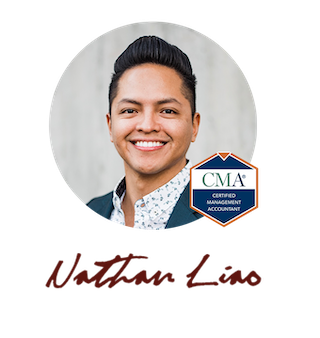
Hi, I’m Nathan Liao (aka the CMA Coach)! For the last 10 years, over 82,000 accounting and finance pros came knocking at my door seeking guidance and help. If you’re also aiming to conquer the CMA exam on your very first try—without wasting away time or money—you’ve found your ultimate guide. Dive in deeper to discover more about me and the dedicated team that powers CMA Exam Academy. Click here and let’s embark on this journey together!

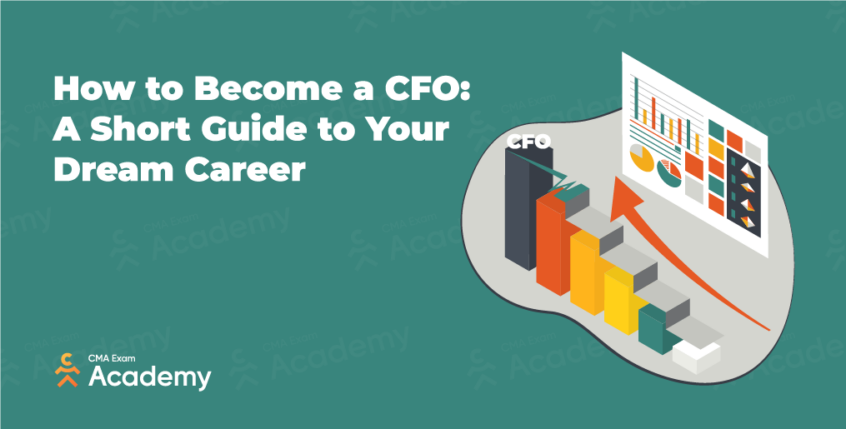
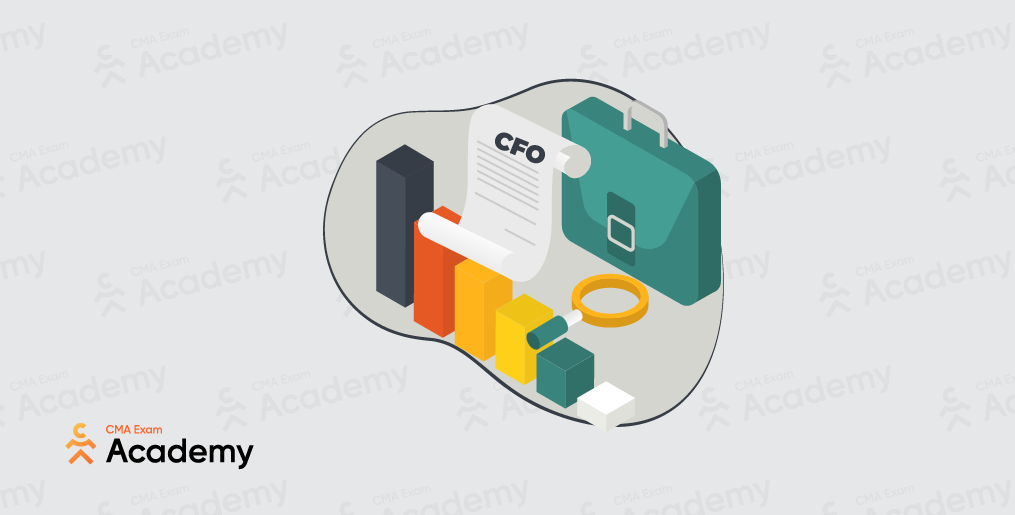
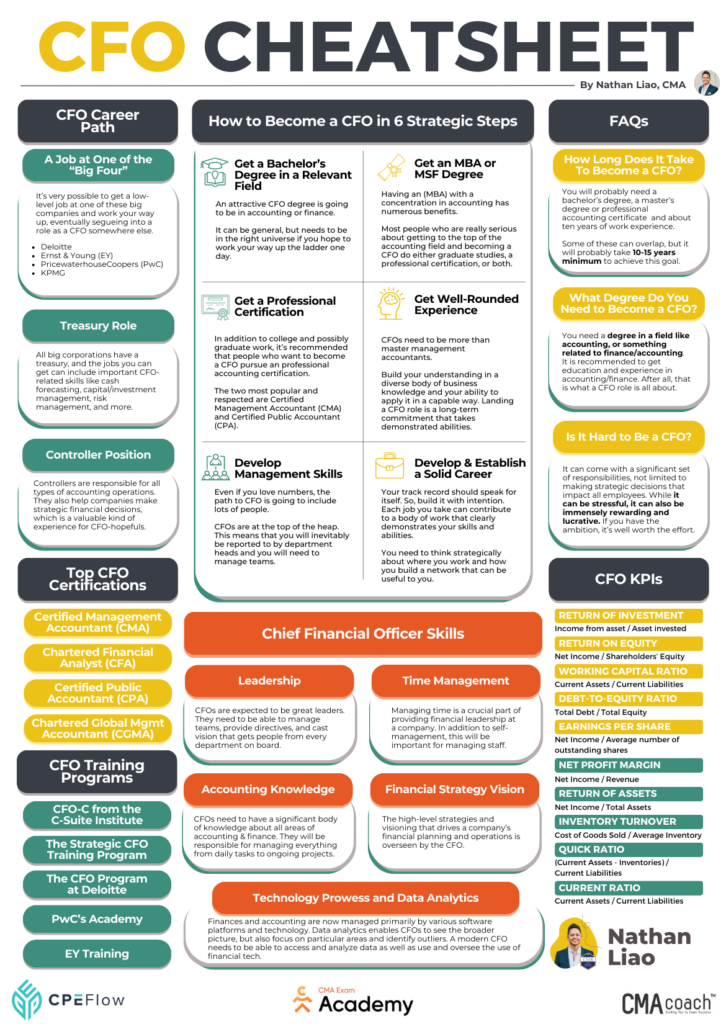
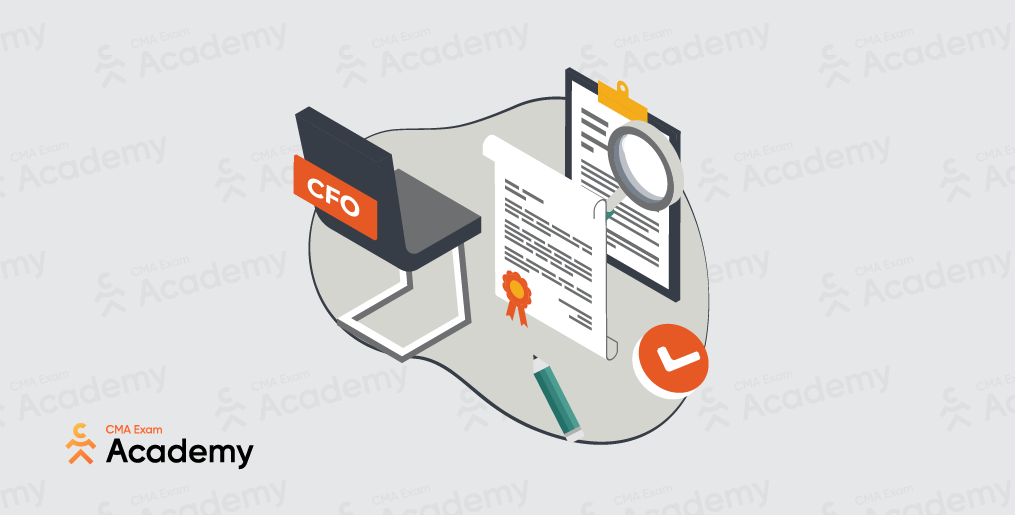
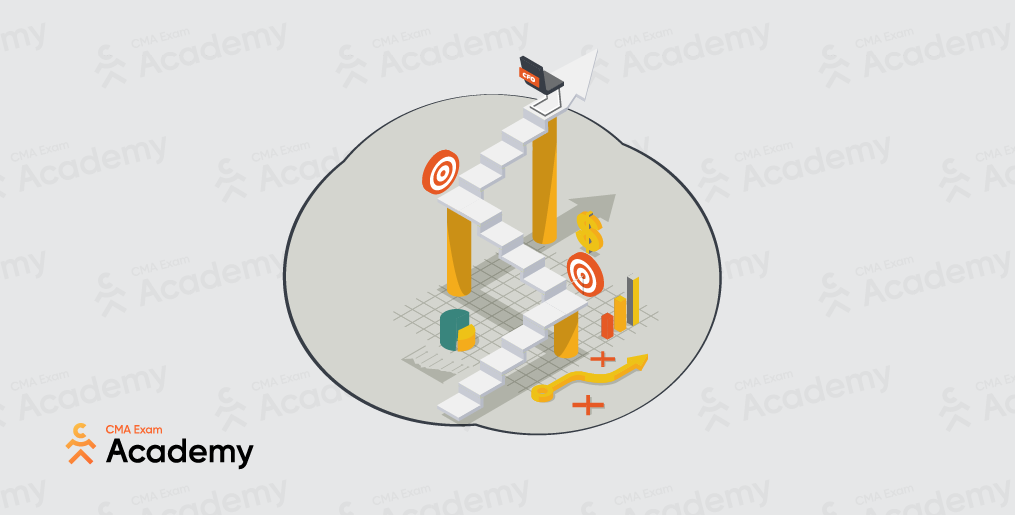
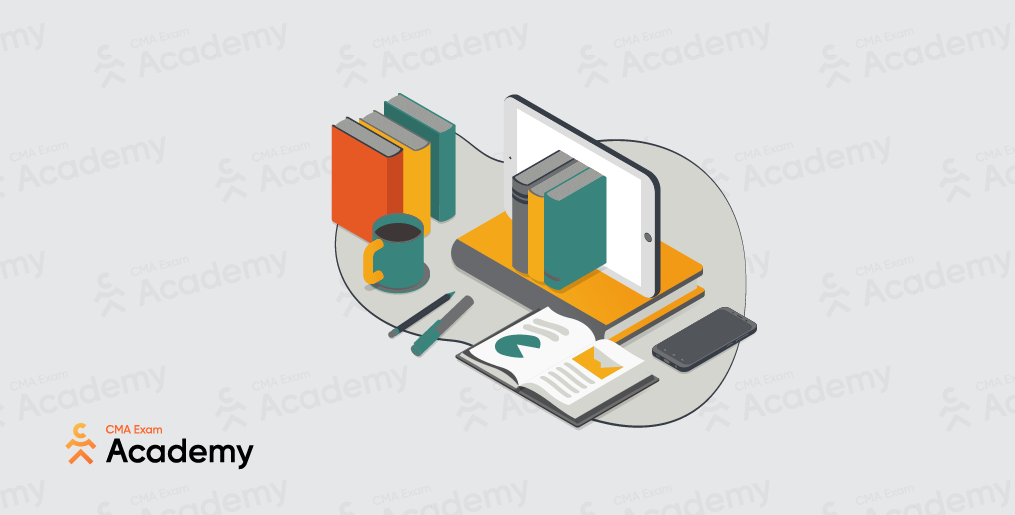
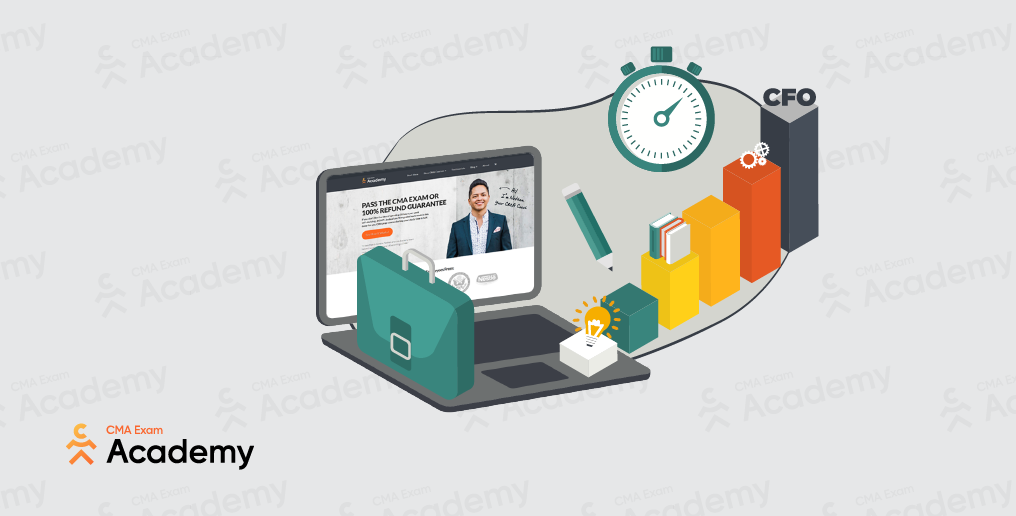
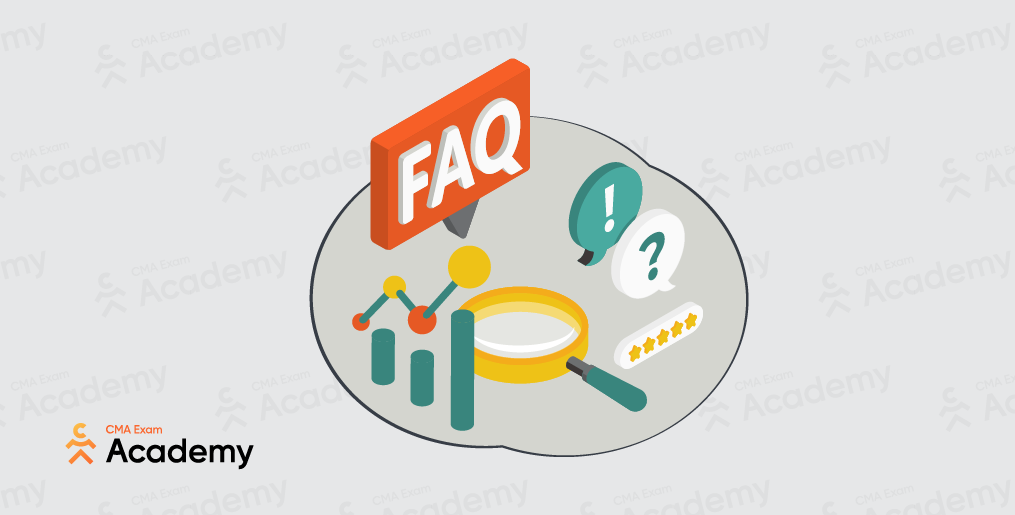

33 Comments on “How to Become a CFO: A Short Guide to Your Dream Career”
Hello Nathan
I have a BS in Business and MBA. I also have several years of accounting experience prior to receiving my BS degree. I would like to pursue career as a CFO, would it be beneficial to me to pursue a MS in CPA or CMA?
Hi Jacqueline,
To become a CFO, a strong accounting/finance background plus a professional designation like the CMA is essential. With your experience and degrees, the CMA would enhance your strategic and leadership skills, making it a great choice.
Good evening Sir, I am have a bachelor’s degree in Economics with a Master’s degree in Finance and CFA and CFP certifications with 6 years of work experience as a financial analyst. I also have an MBA with a concentration in Accounting. Do I qualify to become a CFO?
Hi Chidera,
With your educational background and experience as a financial analyst, you certainly have a strong foundation for a role as a CFO.
Remember, each company may have specific requirements for their CFO role, so it’s always a good idea to tailor your experience and skills to match those needs
Thank you very much.
Hello,
I’m actually hesitating about taking a masters degree in “Accounting and Finance” or taking the master in “Financial Management”. What is the one more suitable for a CFO job in the future ? and a short term job of Financial analyst ?
Thank you,
Hi Remy,
Thanks for reaching out. Because your goal is to ultimately work as a CFO, a masters degree in accounting and/or finance is a better fit.
However, the CMA credential is at a fraction of the cost of a masters program and provides equal career benefits. Consider getting certified first, and if the job demands it, then invest on an MBA. Just some food for thought.
Thanks, Nathan
Hi Nathan
I’m a b.com graduate and I’m working . My job role is audit and assurance. My dream is to become CFO And I have confusion whether I want to do US CMA or ACCA or MBA.
Please clarify my confusion
Hi Likhith,
To become a CFO, you’ll need a strong accounting/finance background and a professional designation such as the CMA. An MBA in finance also helps.
Nathan
Good evening sir!!
I just want to know that we can have CFO position by studying mba in finance or doing CMA is important to be a CFO??
Thank you!
I hope you’ll reply me soon!!
Hi Avika,
An MBA and the CMA will help for sure but you also need a solid track record of work experience in accounting/finance. Degrees/certifications alone won’t land you a CFO job right out of the gate. Gain work experience as well.
Nathan
Hii
I am Aishwary . I am in 11th and deciding to pursue CFO . For which First I am thinking of b.com
then MBA then CMA . Is this the wright path which I had gathered from searching and talking to people
Hi Aishwary,
To become a CFO, you’ll need a strong accounting/finance background and a professional designation such as the CMA. An MBA in finance also helps.
Nathan
Hi Nathan,
I am currently working as an accounts officer in MNC company and also I’ve recently completed my MBA Financial Management degree and also pursuing ACCA UK. So, can I become CFO from this type of path or shall I consider something else?
Hi Bhavleen,
Thank you for your question.
Your MBA in finance helps. To become a CFO, a solid track record in accounting/finance is necessary plus a professional designation like the CMA.
Good Day Sir,
I just graduated my Bachelor of Accounting ,
I have an ambition to become a CFO but i don’t have knowledge what is the next step to do either to do CMA, MBA or work in a firm
Suggest me for a better way sir
Thank you
Hi Al,
Thank you for your question.
To succeed as a CFO you’ll need a professional certification like the CMA and a proven track record in accounting/finance.
Hi Nathan,
I am Gregory G Philips from Liberia, I am an undergraduate student of accounting in my final year. Upon graduation, I want to pursue master that will enable me achieve my dream of becoming a CFO. Kindly advice me, what should I study at master level that will be the best fit for my career after completing bachelor degree in accounting?
Thank you..
Hi Gregory,
To become a CFO, a candidate must have a strong accounting/finance background as well as a professional designation such as the CMA. An MBA in finance also helps.
If you have any other questions, please don’t hesitate to ask.
Hi Nathan,
I’m in high school right now and my plan is to get a bachelor’s in finance or economics and then get an MBA. The thing is I’m a lot more interested in economics than finance. Can I still become a CFO with these aspirations or would I have to major in something like accounting or finance instead of economics?
Hi Andrew,
Thank you for your question.
You’ll need a proven track record in accounting/finance as well as a professional certification like the CMA to succeed as a CFO.
If you have any other questions, please don’t hesitate to ask.
Hi I’m Umesh Kumar Chhura,
I want to become CFO. I have done my under-graduation in the year 2023. Now I’m planning to take 2 yrs Master degree in Canada in sep.23. But I’m bit perplexed to choose MBA in Finance or Master in Finance. CPA OR CAM which one is very close to CFO career.
Pl advise on my education journey.
Thank you.
Hi Umesh,
Thank you for your question.
To become a CFO, a candidate needs a solid track record in accounting/finance plus a professional designation like the CMA.
An MBA in finance also helps.
Feel free to reply back if you have any other questions.
HELLO, I’M VAISHU
LOVED YOUR ARTICLE. VERY CLEAR EXPLANATION. I WANT TO BECOME CFO. NOW I’M STUDYING CLASS 11 ( COMMERCE WITH COMPUTER APPLICATION ) I MADE SOME PLANS TO BECOME CFO. KINDLY GIVE ME SUGGESTIONS. AFTER COMPLETING CLASS 12 I DECIDED TO DO BCOM in ACCOUNTANCY AND FINANCE. AT THE SAME TIME DOING CMA US. AFTER COMPLETING THESE, GAINING 2 YEARS OF EXPERIENCE IN THE RELATED FIELD JOB AND GOING TO USA FOR JOB. PURSUING MBA AND DOING CPA US IN THE 2nd YEAR OF MBA IN USA. AFTER GETTING THE CERTIFICATION OF CPA. APPLYING FOR JOB WITH A BACHELOR’S DEGREE, MBA, CMA US , CPA US WITH SOME YEARS OF EXPERIENCE. THIS IS WHAT I PLANNED. BUT I DON’T KNOW THAT, THIS IS RIGHT OR NOT. SO, KINDLY GIVE ME SUGGESTIONS.
THANKS
Hi Vaishu,
I’m glad you found the article useful. Your plans sound great.
To become a CFO, you’ll need a solid track record in accounting/finance as well as a professional designation like the CMA. An MBA in finance helps too.
Feel free to reply if you have any other questions.
Hi
My aim is to become CFO. Studing in 12th commerce with Applied Maths and planing to take 2 yrs diploma in canada in sep.23 than bachelors and certificate course/Masters…
Pl advise on my education journey
Hi Jevin,
To become a CFO, a candidate needs a solid track record in accounting/finance plus a professional designation like the CMA. An MBA in finance also helps.
Feel free to reply back if you have any other questions.
Thanks
HELLO THERE AM ISAAC I HAVE READ YOU ARTICLE , I DON’T HAVE BACKGROUND OF FINANCE AND ACCOUNTING I HAVE BACHELOR OF CHEMISTRY BUT NOW AM DOING MBA IN FINANCE AND ACCOUNTING MY QUESTION IS IT POSSIBLE FOR ME TO BECOME A CFO…?
Hi Isaac,
Thank you for your question.
To become a CFO, a candidate needs a solid track record in accounting/finance plus a professional designation like the CMA. An MBA in finance also helps.
Feel free to reply back if you have any other questions. Thanks
So a dream to become CFO has been perished just because I don’t have a solid background of accounting / accounting ..?
What if I have bsc in chemistry MBA in finance and Accounting and I will take CMA..?
Hi Isaac,
An MBA and the CMA will help for sure but you also need a solid track record of work experience in accounting/finance. Degrees/certifications alone won’t land you a CFO job right out of the gate. Gain work experience as well.
Nathan
Hey Nathan
I loved your article on how to become a CFO. I own a stake in a startup, where I’m the CTO. However, I am more interested in finance than I am in technology, so I’m considering letting my partner (the CEO) know. Presently, I may not be able to make a pitch for opening up a CFO role. But I would like to show the kind of initiative that will breed my partner’s confidence in placing me as a CFO instead of someone who has, say, 5 years’ experience in the finance industry. I’d probably be asking for a lot, but I don’t think it’s impossible. Would you mind writing me one sentence about what you think?
Thanks
Bill
Hi Bill,
thank you for reading my article. I’m glad you found it interesting.
Regarding your question, do you have experience in accounting/finance or is your background only in tech? To become a CFO, a candidate needs a solid track record in accounting/finance plus a professional designation like the CMA.